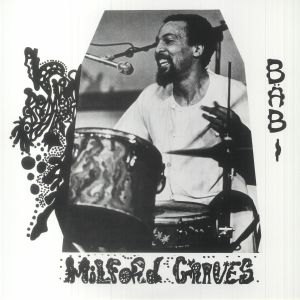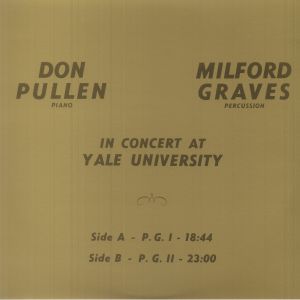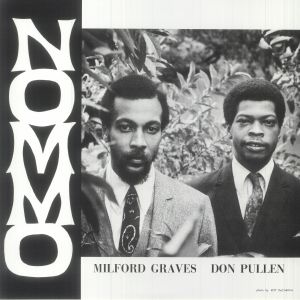Back catalogue:
Juno's full catalogue of
Alben
Review: As part of a large retrospective of jazz drummer Milford Graves' best works comes this new edition of one of his most coveted works, Babi. By the early 70s, Graves had more or less stopped gigging; knowing that the level of energy that he put out during most performances would be difficult to sustain over the long haul. Even so, in March 1976, Verna Gillis invited Graves to perform on WBAI's Free Music Store radio show. For the date, he chose to present a trio lineup which he had been occasionally playing - featuring two saxophonists who were dedicated to the drummer's vision: Hugh Glover and Arthur Doyle. Originally released in 1977, Babi remains one of Graves' most seminal recordings. The music played by the trio was ecstatic; this is extreme energy music, buoyant and joyful. It relied on Graves' new way of approaching the drum kit, in which he had opened up the bottoms of his skin-slackened toms and eliminated the snare. Graves' art was always unblemished by commercial interests, and this album is its finest mission statement.
… Read more in stock $31.71
In Concert At Yale University (LP + insert)
Cat: SV 194. Rel: 28 Nov 23
Review: After beginning his career in the early 60s as a part of New York's vibrant Latin jazz scene, Milford Graves' focus quickly turned inward, shifting towards a practice that explored the very nature of self. From his work in the New York Art Quartet and collaborations with Albert Ayler, Sonny Sharrock and more to his important contributions during NYC's loft era - he is, simply put, free jazz royalty. In April 1966, Graves and pianist Don Pullen played at Yale University. As John Corbett writes in the liner notes, "This performance was something of a turning point for Graves. Until then he had been working in other people's bands or collective ensembles. He was phenomenally busy. In 1965 alone, he recorded with NYAQ (two LPs), Giuseppi Logan Quartet, Paul Bley Quintet and Lowell Davidson Trio, and he made his first recording released under his own name, Percussion Ensemble. Every one of these is important in its own way, but none of them quite anticipate how radical was the music that he and Pullen would unleash that evening in New Haven." Originally released on the artists' own Self-Reliance Program label, this legendary one-night performance would be split into two volumes: In Concert At Yale University and Nommo. While rooted in African rhythms, Graves' music has its own sense of time. As the drummer stated in a 1966 DownBeat interview, "Time was always there, and the time I see is not the same as what man says time is. It works by impulsion."
… Read more in stock $29.44
Review: Hardcore record collectors love a leftfield talent or outthere artistic character, and the late percussionist Milford Graves certainly fits that biting. He was one of the most unique artists of his time and grew from the states of his native New York to be known around the world for his work in the New York Art Quartet and collaborations with Albert Ayler, Sonny Sharrock and contributions to the NYC loft era free jazz scene. He linked up with pianist Don Pullen in April 1966 for a show at Yale University that marked a real turning point in that it saw him take more creative control having mostly collaborated up until then. Strap in and listen to what he had to say for himself on this fine reissue of recordings from that night.
… Read more in stock $29.17

 USD
USD








